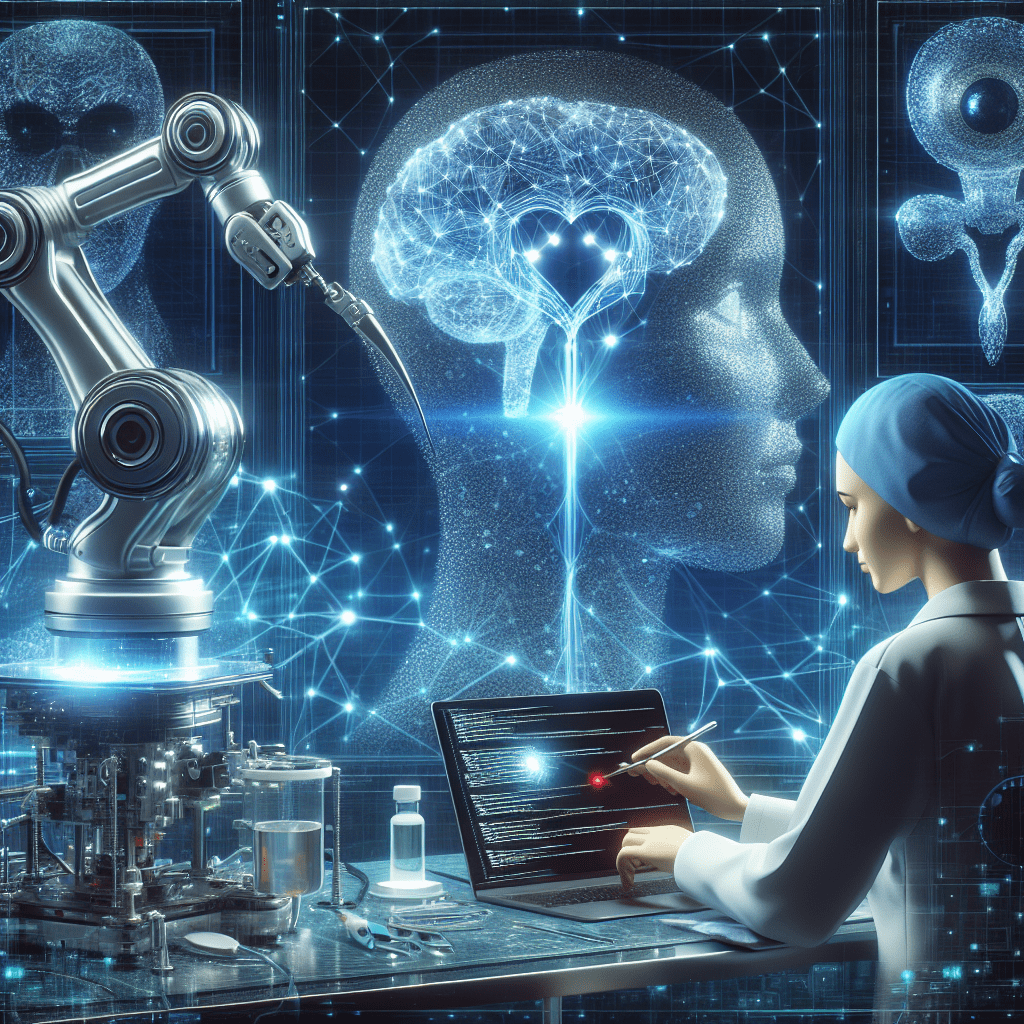Artificial Intelligence (AI) has made significant advancements in recent years and has the potential to revolutionize various industries, including healthcare. In this article, we will explore some of the cutting-edge AI developments that are poised to transform healthcare as we know it.
1. Personalized Medicine
AI has the ability to analyze large amounts of data and identify patterns that can help doctors provide personalized treatment plans for their patients. By utilizing AI algorithms, healthcare providers can create tailored treatment plans based on individual factors such as genetics, lifestyle, and medical history.
2. Medical Imaging
AI-powered medical imaging technologies have shown impressive capabilities in diagnosing diseases such as cancer at an early stage. Machine learning algorithms can analyze medical images with a level of accuracy that rivals human radiologists, leading to quicker and more accurate diagnoses.
3. Drug Discovery
AI is also being used to streamline the drug discovery process by analyzing vast amounts of data to identify potential drug candidates. By utilizing AI algorithms, researchers can significantly reduce the time and cost involved in developing new drugs, ultimately bringing life-saving treatments to market faster.
4. Predictive Analytics
AI can analyze patient data to predict and prevent potential health issues before they occur. By monitoring a patient’s health data in real-time, AI algorithms can provide early warning signs of conditions such as heart disease or diabetes, allowing for proactive interventions to improve patient outcomes.
5. Virtual Health Assistants
Virtual health assistants powered by AI can provide patients with personalized healthcare recommendations and support. These virtual assistants can help patients manage their medications, schedule appointments, and monitor their health metrics, ultimately leading to better patient engagement and improved health outcomes.
Conclusion
AI has the potential to revolutionize healthcare by providing personalized treatment plans, improving diagnostics, streamlining drug discovery, predicting health issues, and enhancing patient engagement. As these cutting-edge AI developments continue to evolve, the future of healthcare looks increasingly bright with the promise of improved outcomes and reduced costs.
FAQs
Q: Is AI in healthcare safe?
A: AI in healthcare is regulated and subject to stringent privacy and security measures to ensure patient data is protected. While there are risks associated with implementing AI in healthcare, such as bias in algorithms or data breaches, steps are being taken to mitigate these risks and ensure the safety and effectiveness of AI technologies in healthcare.
Q: How can AI improve patient outcomes?
A: AI can improve patient outcomes by providing personalized treatment plans, enhancing diagnostics, predicting health issues before they occur, and promoting patient engagement. By leveraging AI technologies, healthcare providers can deliver more efficient and effective care to their patients, ultimately leading to improved outcomes and better quality of life.
Q: What are the key challenges of implementing AI in healthcare?
A: Some of the key challenges of implementing AI in healthcare include ensuring the quality and accuracy of AI algorithms, addressing issues of bias and discrimination in AI models, securing patient data, and ensuring regulatory compliance. While these challenges exist, efforts are being made to overcome them and harness the full potential of AI in healthcare.
Quotes
“The transformative potential of AI in healthcare is immense, with the promise of personalized medicine, improved diagnostics, and better patient outcomes on the horizon.” – Dr. Emily Chen, Chief Medical Officer
Write a story about a young girl who discovers she has a special power to communicate with animals.


